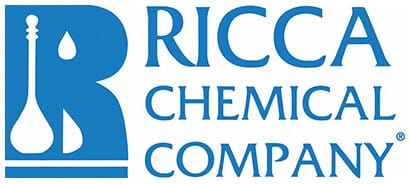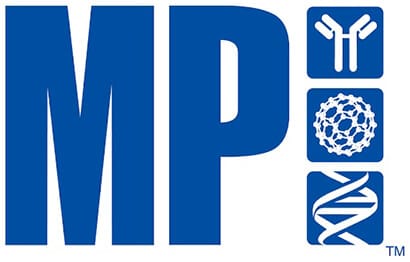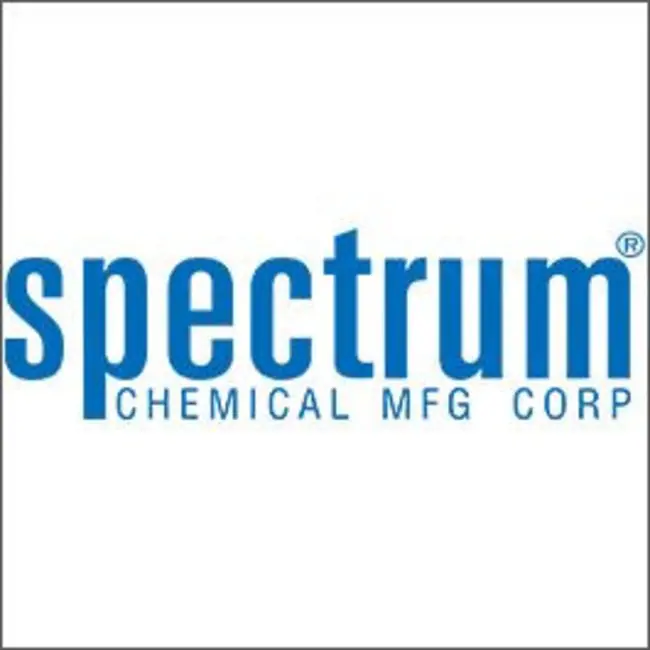GenScript Biotech
Showing 2451–2500 of 2554 results
-
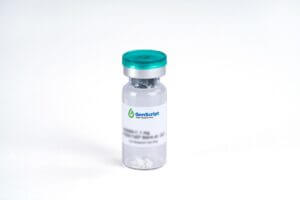
TNF-β, Human
$1,323.94 Add to cart View Product DetailsTNF is secreted by macrophages, monocytes, neutrophils, T-cells, NK-cells following their stimulation by bacterial LPS. Cells expressing CD4 secrete TNF-alpha while CD8 cells secrete little or no TNF-alpha. The synthesis of TNF-alpha is induced by many different stimuli including interferons, IL2, GM-CSF. TNF-β is a potent mediator of inflammatory and immune responses. It belongs to the TNF family of ligands, and signals through TNFR1 and TNFR2. TNF-β is produced by activated T and B lymphocytes, and has similar activities to TNF-α. It mediates a large variety of inflammatory, immunostimulatory, and antiviral responses.
-
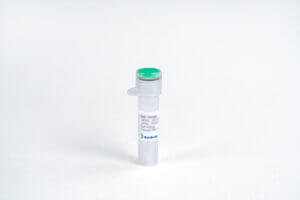
TNF-β, Human
$63.83 Add to cart View Product DetailsTNF is secreted by macrophages, monocytes, neutrophils, T-cells, NK-cells following their stimulation by bacterial LPS. Cells expressing CD4 secrete TNF-alpha while CD8 cells secrete little or no TNF-alpha. The synthesis of TNF-alpha is induced by many different stimuli including interferons, IL2, GM-CSF. TNF-β is a potent mediator of inflammatory and immune responses. It belongs to the TNF family of ligands, and signals through TNFR1 and TNFR2. TNF-β is produced by activated T and B lymphocytes, and has similar activities to TNF-α. It mediates a large variety of inflammatory, immunostimulatory, and antiviral responses.
-

TNF-β, Human
$155.25 Add to cart View Product DetailsTNF is secreted by macrophages, monocytes, neutrophils, T-cells, NK-cells following their stimulation by bacterial LPS. Cells expressing CD4 secrete TNF-alpha while CD8 cells secrete little or no TNF-alpha. The synthesis of TNF-alpha is induced by many different stimuli including interferons, IL2, GM-CSF. TNF-β is a potent mediator of inflammatory and immune responses. It belongs to the TNF family of ligands, and signals through TNFR1 and TNFR2. TNF-β is produced by activated T and B lymphocytes, and has similar activities to TNF-α. It mediates a large variety of inflammatory, immunostimulatory, and antiviral responses.
-

ToxinEraser™ Endotoxin Removal Kit
$108.68 Add to cart View Product DetailsGenScript ToxinEraser™ is an endototoxin removal resin of high efficiency. It is based on the affinity matrix of modified polymyxin B (PMB), which allows highly efficient endotoxin removal. The final endotoxin level can be decreased to less than 0.1 EU/ml with repeat use of ToxinEraser™ endotoxin removal resin. Final removal efficiency may vary depending on the sample type/source.
-

ToxinEraser™ Endotoxin Removal Resin
$51.75 Add to cart View Product DetailsLipopolysaccharide
(LPS) is a bacterial endotoxin, and a major constituent of the cell walls of
gram-negative bacteria. During gram-negative bacteremia or endotoxemia, LPS is
the principal pathophysiological mediator by which bacteria can cause
hypotension, organ failure, disseminated intravascular coagulation, and fatal
shock in mammalian hosts. The removal of these endotoxins is highly necessary
for downstream processes.
The ToxinEraser™
Endotoxin Removal Resin utilizes immobilized polymixin B to bind and remove
pyrogens from solution. The polymixins are a family of antibiotics that contain
a cationic cyclopeptide with a fatty acid chain. Polymixin B neutralizes the
biological activity of endotoxins by binding to the lipid A portion of
bacterial lipopolysaccharide. -

ToxinEraser™ Equilibration Buffer
$21.56 Add to cart View Product DetailsToxinEraserTM Equilibration Buffer (Cat.No. M01054) is suit for equilibration of ToxinEraserTM Endotoxin Removal Kit and ToxinEraserTM Endotoxin Removal Resin.
- Endotoxin level: < 0.015 EU/ml
-

ToxinEraser™ Regeneration Buffer
$21.56 Add to cart View Product DetailsToxinEraserTM Regeneration Buffer (Cat.No. M01053) is suit for regeneration of ToxinEraserTM Endotoxin Removal Kit and ToxinEraserTM Endotoxin Removal Resin.
Endotoxin level: < 0.015 EU/ml -

ToxinSensor™ Chromogenic LAL Endotoxin Assay Kit
$171.64 Add to cart View Product DetailsGenscript ToxinSensor™ Chromogenic LAL Endotoxin Assay Kit is designed to be a quantitative In Vitro end-point endotoxin test for human and animal parenteral drugs, biological products, and medical devices.The system is not intended for detection of endotoxin in a licensed reagent, clinical samples or the diagnosis of human disease. A measurable endotoxin concentration range from 0.01 to 1 EU/ml can be achieved. Lyophilized Amebocyte Lysate reagent is made from amebocyte lysate from the horseshoe crab (Tachypleus tridentatus).
-

ToxinSensor™ Chromogenic LAL Endotoxin Assay Kit
$94.88 Add to cart View Product DetailsGenscript ToxinSensor™ Chromogenic LAL Endotoxin Assay Kit is designed to be a quantitative In Vitro end-point endotoxin test for human and animal parenteral drugs, biological products, and medical devices.The system is not intended for detection of endotoxin in a licensed reagent, clinical samples or the diagnosis of human disease. A measurable endotoxin concentration range from 0.01 to 1 EU/ml can be achieved. Lyophilized Amebocyte Lysate reagent is made from amebocyte lysate from the horseshoe crab (Tachypleus tridentatus).
-

ToxinSensor™ Endotoxin-free Pipette Tips (1 ml, Blue)
$5.18 Add to cart View Product DetailsGenScript innovating Endotoxin-free pipette tips are designed for compatible use with most common pipetts from different manufacturers, which brings more flexibility. All tips are available in 1 version (1 ml) for laboratory routines. In addition, the tip can be used to dilute or aliquot sample with a low endotoxin level requirement (<0.005 EU/ml). GenScript Endotoxin-free tips are provided in encapsulation with pyrogen-free plastic bags, which sufficiently inhibits the introduction of any contamination, such as RNase/DNase.
-
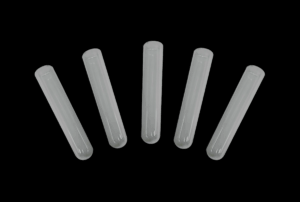
ToxinSensor™ Endotoxin-free Tubes
$30.19 Add to cart View Product DetailsGenScript supplies 2.5 ml endotoxin-free tubes with plain
end made of research-grade glass. GenScript′s Endotoxin-free tubes can be
applied to dilute or aliquot sample with an especial requirement of endotoxin
level (< 0.005 EU/ml). GenScript Endotoxin-free tubes
are provided in encapsulation with pyrogen-free aluminum foil (folded into a
package), which sufficiently inhibits the introduction of any contamination,
such as RNase/DNase. -

ToxinSensor™ Endotoxin-free Tubes
$86.25 Add to cart View Product DetailsGenScript supplies 2.5 ml endotoxin-free tubes with plain
end made of research-grade glass. GenScript′s Endotoxin-free tubes can be
applied to dilute or aliquot sample with an especial requirement of endotoxin
level (< 0.005 EU/ml). GenScript Endotoxin-free tubes
are provided in encapsulation with pyrogen-free aluminum foil (folded into a
package), which sufficiently inhibits the introduction of any contamination,
such as RNase/DNase. -

ToxinSensor™ Endotoxin-free Tubes
$18.98 Add to cart View Product DetailsGenScript supplies 2.5 ml endotoxin-free tubes with plain
end made of research-grade glass. GenScript′s Endotoxin-free tubes can be
applied to dilute or aliquot sample with an especial requirement of endotoxin
level (< 0.005 EU/ml). GenScript Endotoxin-free tubes
are provided in encapsulation with pyrogen-free aluminum foil (folded into a
package), which sufficiently inhibits the introduction of any contamination,
such as RNase/DNase. -

ToxinSensor™ Gel Clot Endotoxin Assay Kit
$126.79 Add to cart View Product DetailsGenScript ToxinSensor™ Gel Clot Endotoxin Assay
Kit is designed as a simple and sensitive in vitro end-product endotoxin test
for human and animal parenteral drugs, biological products, and medical
devices. The LAL test is a qualitative test for Gram-negative bacterial endotoxin.
Lyophilized Amebocyte Lysate as supplied in the kit is to be reconstituted with
LAL Reagent Water and then mixed in equal parts with the solution being tested.
After incubation, and in the presence of endotoxin, gelation occurs; in the
absence of endotoxin, gelation does not occur. Lyophilized Amebocyte Lysate
reagent is made from amebocyte lysate from the horseshoe crab (Tachypleus tridentatus).The protocol
described herein conforms to those described in the FDA guideline. Similar
performance requirements for gel clot assays have been published and are
updated regularly in the United States Pharmacopeia. -

ToxinSensor™ Single Tests Kit with Standard, 0.03EU/ml
$99.19 Add to cart View Product DetailsGenScript ToxinSensorTM Single Tests Kit with
Standard is designed to be a qualitative In Vitro end-point
endotoxin test for human and animal parenteral
drugs, biological products, and medical devices.
Tachypleus
Amebocyte Lysate (TAL) as supplied is to be reconstituted with sample or
control directly. After incubation for 1 hour,
and in the presence of endotoxin, gelation occurs; in the absence of endotoxin,
gelation does not occur.
GenScript
supply a series of ToxinSensorTM Single Tests Kits with Standard
with different sensitivity (0.03 EU/ml, 0.06 EU/ml, 0.125 EU/ml and 0.25
EU/ml).
When using
the Kit, you just need to add 200µl of sample or
control to TAL, then, wait for the required incubation time to allow for
gel to form. There is no need to reconstitute the system with TAL Reagent Water
before use. -

ToxinSensor™ Single Tests Kit with Standard, 0.03EU/ml
$172.50 Add to cart View Product DetailsGenScript ToxinSensorTM Single Tests Kit with
Standard is designed to be a qualitative In Vitro end-point
endotoxin test for human and animal parenteral
drugs, biological products, and medical devices.
Tachypleus
Amebocyte Lysate (TAL) as supplied is to be reconstituted with sample or
control directly. After incubation for 1 hour,
and in the presence of endotoxin, gelation occurs; in the absence of endotoxin,
gelation does not occur.
GenScript
supply a series of ToxinSensorTM Single Tests Kits with Standard
with different sensitivity (0.03 EU/ml, 0.06 EU/ml, 0.125 EU/ml and 0.25
EU/ml).
When using
the Kit, you just need to add 200µl of sample or
control to TAL, then, wait for the required incubation time to allow for
gel to form. There is no need to reconstitute the system with TAL Reagent Water
before use. -

ToxinSensor™ Single Tests Kit with Standard, 0.06EU/ml
$99.19 Add to cart View Product DetailsGenScript ToxinSensorTM Single Tests Kit with
Standard is designed to be a qualitative In Vitro end-point
endotoxin test for human and animal parenteral
drugs, biological products, and medical devices.
Tachypleus
Amebocyte Lysate (TAL) as supplied is to be reconstituted with sample or
control directly. After incubation for 1 hour,
and in the presence of endotoxin, gelation occurs; in the absence of endotoxin,
gelation does not occur.
GenScript
supply a series of ToxinSensorTM Single Tests Kits with Standard
with different sensitivity (0.03 EU/ml, 0.06 EU/ml, 0.125 EU/ml and 0.25
EU/ml).
When using
the Kit, you just need to add 200µl of sample or
control to TAL, then, wait for the required incubation time to allow for
gel to form. There is no need to reconstitute the system with TAL Reagent Water
before use. -

ToxinSensor™ Single Tests Kit with Standard, 0.06EU/ml
$172.50 Add to cart View Product DetailsGenScript ToxinSensorTM Single Tests Kit with
Standard is designed to be a qualitative In Vitro end-point
endotoxin test for human and animal parenteral
drugs, biological products, and medical devices.
Tachypleus
Amebocyte Lysate (TAL) as supplied is to be reconstituted with sample or
control directly. After incubation for 1 hour,
and in the presence of endotoxin, gelation occurs; in the absence of endotoxin,
gelation does not occur.
GenScript
supply a series of ToxinSensorTM Single Tests Kits with Standard
with different sensitivity (0.03 EU/ml, 0.06 EU/ml, 0.125 EU/ml and 0.25
EU/ml).
When using
the Kit, you just need to add 200µl of sample or
control to TAL, then, wait for the required incubation time to allow for
gel to form. There is no need to reconstitute the system with TAL Reagent Water
before use. -

ToxinSensor™ Single Tests Kit with Standard, 0.125EU/ml
$99.19 Add to cart View Product DetailsGenScript ToxinSensorTM Single Tests Kit with
Standard is designed to be a qualitative In Vitro end-point
endotoxin test for human and animal parenteral
drugs, biological products, and medical devices.
Tachypleus
Amebocyte Lysate (TAL) as supplied is to be reconstituted with sample or
control directly. After incubation for 1 hour,
and in the presence of endotoxin, gelation occurs; in the absence of endotoxin,
gelation does not occur.
GenScript
supply a series of ToxinSensorTM Single Tests Kits with Standard
with different sensitivity (0.03 EU/ml, 0.06 EU/ml, 0.125 EU/ml and 0.25
EU/ml).
When using
the Kit, you just need to add 200µl of sample or
control to TAL, then, wait for the required incubation time to allow for
gel to form. There is no need to reconstitute the system with TAL Reagent Water
before use. -

ToxinSensor™ Single Tests Kit with Standard, 0.125EU/ml
$172.50 Add to cart View Product DetailsGenScript ToxinSensorTM Single Tests Kit with
Standard is designed to be a qualitative In Vitro end-point
endotoxin test for human and animal parenteral
drugs, biological products, and medical devices.
Tachypleus
Amebocyte Lysate (TAL) as supplied is to be reconstituted with sample or
control directly. After incubation for 1 hour,
and in the presence of endotoxin, gelation occurs; in the absence of endotoxin,
gelation does not occur.
GenScript
supply a series of ToxinSensorTM Single Tests Kits with Standard
with different sensitivity (0.03 EU/ml, 0.06 EU/ml, 0.125 EU/ml and 0.25
EU/ml).
When using
the Kit, you just need to add 200µl of sample or
control to TAL, then, wait for the required incubation time to allow for
gel to form. There is no need to reconstitute the system with TAL Reagent Water
before use. -

ToxinSensor™ Single Tests Kit with Standard, 0.25EU/ml
$99.19 Add to cart View Product DetailsGenScript ToxinSensorTM Single Tests Kit with Standard is designed to be a qualitative In Vitro end-point endotoxin test for human and animal parenteral drugs, biological products, and medical devices.
Tachypleus Amebocyte Lysate (TAL) as supplied is to be reconstituted with sample or control directly. After incubation for 1 hour, and in the presence of endotoxin, gelation occurs; in the absence of endotoxin, gelation does not occur.
GenScript supply a series of ToxinSensorTM Single Tests Kits with Standard with different sensitivity (0.03 EU/ml, 0.06 EU/ml, 0.125 EU/ml and 0.25 EU/ml).
When using the Kit, you just need to add 200µl of sample or control to TAL, then, wait for the required incubation time to allow for gel to form. There is no need to reconstitute the system with TAL Reagent Water before use.
-

ToxinSensor™ Single Tests Kit with Standard, 0.25EU/ml
$172.50 Add to cart View Product DetailsGenScript ToxinSensorTM Single Tests Kit with Standard is designed to be a qualitative In Vitro end-point endotoxin test for human and animal parenteral drugs, biological products, and medical devices.
Tachypleus Amebocyte Lysate (TAL) as supplied is to be reconstituted with sample or control directly. After incubation for 1 hour, and in the presence of endotoxin, gelation occurs; in the absence of endotoxin, gelation does not occur.
GenScript supply a series of ToxinSensorTM Single Tests Kits with Standard with different sensitivity (0.03 EU/ml, 0.06 EU/ml, 0.125 EU/ml and 0.25 EU/ml).
When using the Kit, you just need to add 200µl of sample or control to TAL, then, wait for the required incubation time to allow for gel to form. There is no need to reconstitute the system with TAL Reagent Water before use.
-

TPO, His, Human
$2,596.13 Add to cart View Product DetailsThrombopoietin (TPO) is a glycoprotein hormone which belongs to the EPO/TPO family. It produced by the liver and kidney which regulates the production of platelets. TPO stimulates the production and differentiation of megakaryocytes, the bone marrow cells that bud off large numbers of platelets. Lineage-specific cytokine affects the proliferation and maturation of megakaryocytes from their committed progenitor cells. It acts at a late stage of megakaryocyte development. It may be the major physiological regulator of circulating platelets.
-

TPO, His, Human
$194.06 Add to cart View Product DetailsThrombopoietin (TPO) is a glycoprotein hormone which belongs to the EPO/TPO family. It produced by the liver and kidney which regulates the production of platelets. TPO stimulates the production and differentiation of megakaryocytes, the bone marrow cells that bud off large numbers of platelets. Lineage-specific cytokine affects the proliferation and maturation of megakaryocytes from their committed progenitor cells. It acts at a late stage of megakaryocyte development. It may be the major physiological regulator of circulating platelets.
-

TPO, His, Human
$543.38 Add to cart View Product DetailsThrombopoietin (TPO) is a glycoprotein hormone which belongs to the EPO/TPO family. It produced by the liver and kidney which regulates the production of platelets. TPO stimulates the production and differentiation of megakaryocytes, the bone marrow cells that bud off large numbers of platelets. Lineage-specific cytokine affects the proliferation and maturation of megakaryocytes from their committed progenitor cells. It acts at a late stage of megakaryocyte development. It may be the major physiological regulator of circulating platelets.
-

TPO, His, Human
$1,863.00 Add to cart View Product DetailsThrombopoietin (TPO) is a glycoprotein hormone which belongs to the EPO/TPO family. It produced by the liver and kidney which regulates the production of platelets. TPO stimulates the production and differentiation of megakaryocytes, the bone marrow cells that bud off large numbers of platelets. Lineage-specific cytokine affects the proliferation and maturation of megakaryocytes from their committed progenitor cells. It acts at a late stage of megakaryocyte development. It may be the major physiological regulator of circulating platelets.
-

TPO, Mouse
$1,651.69 Add to cart View Product DetailsThrombopoietin (TPO), also known as C-mpl ligand, MGDF and Thpo, is a glycoprotein hormone belonging to the EPO/TPO family. It is expressed mainly in the liver, kidney and skeletal muscle. TPO binds and signals through MLP/C_MPL receptor. It stimulates the proliferation and maturation of megakaryocytes from their committed progenitor cells, and it regulates the production and circulation of platelets. TPO has also been reported to promote the apoptosis of hypoxia-sensitized neurons and to inhibit neuronal differentiation.
-

TPO, Mouse
$86.25 Add to cart View Product DetailsThrombopoietin (TPO), also known as C-mpl ligand, MGDF and Thpo, is a glycoprotein hormone belonging to the EPO/TPO family. It is expressed mainly in the liver, kidney and skeletal muscle. TPO binds and signals through MLP/C_MPL receptor. It stimulates the proliferation and maturation of megakaryocytes from their committed progenitor cells, and it regulates the production and circulation of platelets. TPO has also been reported to promote the apoptosis of hypoxia-sensitized neurons and to inhibit neuronal differentiation.
-

TPO, Mouse
$224.25 Add to cart View Product DetailsThrombopoietin (TPO), also known as C-mpl ligand, MGDF and Thpo, is a glycoprotein hormone belonging to the EPO/TPO family. It is expressed mainly in the liver, kidney and skeletal muscle. TPO binds and signals through MLP/C_MPL receptor. It stimulates the proliferation and maturation of megakaryocytes from their committed progenitor cells, and it regulates the production and circulation of platelets. TPO has also been reported to promote the apoptosis of hypoxia-sensitized neurons and to inhibit neuronal differentiation.
-
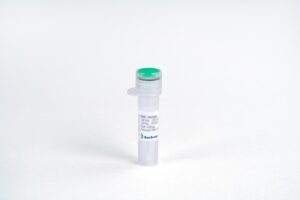
TRAIL, Mouse
$664.13 Add to cart View Product DetailsTNF-related apoptosis-inducing ligand (TRAIL), also known as Tumor Necrosis Factor Super-Family 10 (TNFSF10) or apoptosis 2 ligand (Apo2L), is a pleiotropic cytokine thatbelongs to the TNF superfamily. Full length TRAIL expressed in vivo is a type II transmembrane protein, although the soluble form also exists and functions. TRAIL has four major receptors: two death receptors DR4 and DR5, and two decoy receptors DcR1 and DcR2. TRAIL binds to the death receptors which recruits the FAS-associated death domain and activates caspases 8 and 10 which eventually leads to apoptosis. Because of its antitumor potential, TRAIL is activelystudied as a therapeutic agent. On the other hand, abnormal expression of TRAIL in small arteries can induce the proliferation of smooth muscle cells, thereby increasing vascular remodeling and pulmonary arterial hypertension.
-

TRAIL, Mouse
$43.13 Add to cart View Product DetailsTNF-related apoptosis-inducing ligand (TRAIL), also known as Tumor Necrosis Factor Super-Family 10 (TNFSF10) or apoptosis 2 ligand (Apo2L), is a pleiotropic cytokine thatbelongs to the TNF superfamily. Full length TRAIL expressed in vivo is a type II transmembrane protein, although the soluble form also exists and functions. TRAIL has four major receptors: two death receptors DR4 and DR5, and two decoy receptors DcR1 and DcR2. TRAIL binds to the death receptors which recruits the FAS-associated death domain and activates caspases 8 and 10 which eventually leads to apoptosis. Because of its antitumor potential, TRAIL is activelystudied as a therapeutic agent. On the other hand, abnormal expression of TRAIL in small arteries can induce the proliferation of smooth muscle cells, thereby increasing vascular remodeling and pulmonary arterial hypertension.
-

TRAIL, Mouse
$90.56 Add to cart View Product DetailsTNF-related apoptosis-inducing ligand (TRAIL), also known as Tumor Necrosis Factor Super-Family 10 (TNFSF10) or apoptosis 2 ligand (Apo2L), is a pleiotropic cytokine thatbelongs to the TNF superfamily. Full length TRAIL expressed in vivo is a type II transmembrane protein, although the soluble form also exists and functions. TRAIL has four major receptors: two death receptors DR4 and DR5, and two decoy receptors DcR1 and DcR2. TRAIL binds to the death receptors which recruits the FAS-associated death domain and activates caspases 8 and 10 which eventually leads to apoptosis. Because of its antitumor potential, TRAIL is activelystudied as a therapeutic agent. On the other hand, abnormal expression of TRAIL in small arteries can induce the proliferation of smooth muscle cells, thereby increasing vascular remodeling and pulmonary arterial hypertension.
-

TRAIL/Apo2L, Human
$552.00 Add to cart View Product DetailsTRAIL/Apo2L, also known as Tumor Necrosis Factor Super-Family 10 (TNFSF10), is a pleiotropic cytokine thatbelongs to the TNF superfamily. The full length TRAIL expressed in vivo is a Type II transmembrane protein, although the soluble form also exists and functions. TRAIL has four major receptors: two death receptors DR4 and DR5, two decoy receptors DcR1 and DcR2. TRAIL binds to the death receptors, recruits the FAS-associated death domain, activates caspases 8 and 10, and eventually leads to apoptosis. Because of its antitumor potential, TRAIL is actively studied as a therapeutic agent. On the other hand, abnormal expression of TRAIL in small arteries can induce the proliferation of smooth muscle cells, resulting in increasing vascular remodeling and pulmonary arterial hypertension.
-

TRAIL/Apo2L, Human
$43.13 Add to cart View Product DetailsTRAIL/Apo2L, also known as Tumor Necrosis Factor Super-Family 10 (TNFSF10), is a pleiotropic cytokine thatbelongs to the TNF superfamily. The full length TRAIL expressed in vivo is a Type II transmembrane protein, although the soluble form also exists and functions. TRAIL has four major receptors: two death receptors DR4 and DR5, two decoy receptors DcR1 and DcR2. TRAIL binds to the death receptors, recruits the FAS-associated death domain, activates caspases 8 and 10, and eventually leads to apoptosis. Because of its antitumor potential, TRAIL is actively studied as a therapeutic agent. On the other hand, abnormal expression of TRAIL in small arteries can induce the proliferation of smooth muscle cells, resulting in increasing vascular remodeling and pulmonary arterial hypertension.
-

TRAIL/Apo2L, Human
$86.25 Add to cart View Product DetailsTRAIL/Apo2L, also known as Tumor Necrosis Factor Super-Family 10 (TNFSF10), is a pleiotropic cytokine thatbelongs to the TNF superfamily. The full length TRAIL expressed in vivo is a Type II transmembrane protein, although the soluble form also exists and functions. TRAIL has four major receptors: two death receptors DR4 and DR5, two decoy receptors DcR1 and DcR2. TRAIL binds to the death receptors, recruits the FAS-associated death domain, activates caspases 8 and 10, and eventually leads to apoptosis. Because of its antitumor potential, TRAIL is actively studied as a therapeutic agent. On the other hand, abnormal expression of TRAIL in small arteries can induce the proliferation of smooth muscle cells, resulting in increasing vascular remodeling and pulmonary arterial hypertension.
-
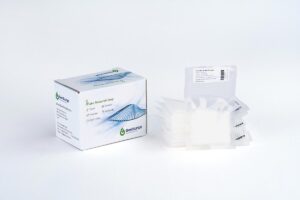
Transfer Buffer Powder
$55.20 Add to cart View Product DetailsTransfer Bufffer Powder are use for ExpressPlus™ and SurePAGE™ gel transfer.Using proprietary techniques, Transfer Bufffer Powder are made to have long shelf life, high resolution, smaller volume.
-

Trastuzumab Immunogenicity Kit (Bridging ELISA)
$429.53 Add to cart View Product DetailsGenScript Trastuzumab Immunogenicity Kit (Bridging ELISA) is designed for detection of anti-Trastuzumab antibody in serum and plasma samples. This kit utilizes a validated bridgingimmunoassay method based on the FDA, EMA and NMPA Immunogenicity Guidelines. Through rigorous validation studies, the kit has been demonstrated high sensitivity, specificity, and is free from matrix effects. It is an ideal tool for the analysis of ADA against Trastuzumab.
-

Trastuzumab Pharmacokinetic ELISA Kit
$429.53 Add to cart View Product DetailsThe Trastuzumab ELISA kit is a validated tool for whole Trastuzumab and its biosimilar quantification in biological matrices for drug research and development.
-
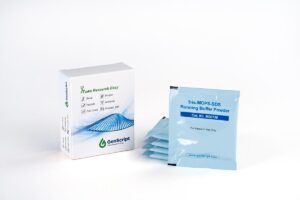
Tris-MOPS-SDS Running Buffer Powder
$29.33 Add to cart View Product DetailsTris-MOPS-SDS Running Buffer Powder are used for ExpressPLUS and SurePAGE gel transfer. Using proprietary techniques, Tris-MOPS-SDS Running Buffer Powder are made to have long shelf life, high resolution, fast electrophoresis, smaller volume.
Reconstitute with 1000 ml H2O to make 1X running buffer per bag of powder.
Recipe of 1X MOPS Buffer:SDS-PAGE Native PAGE Tris Base 6.06g 6.06g MOPS 10.46g 10.46g SDS 1.0g — EDTA 0.3g 0.3g Deionized water To 1000ml To 1000ml -

TrkA, Human
$1,863.00 Add to cart View Product DetailsTyrosine kinase receptor A (Trk-A) is a member of the neurotrophic tyrosine kinase receptor family which includes three members: Trk-A, Trk-B and Trk-C. Trk-A is involved in the development and maturation of the central and peripheral nervous systems through regulation of proliferation, differentiation and survival of sympathetic neurons.
-

TrkA, Human
$43.13 Add to cart View Product DetailsTyrosine kinase receptor A (Trk-A) is a member of the neurotrophic tyrosine kinase receptor family which includes three members: Trk-A, Trk-B and Trk-C. Trk-A is involved in the development and maturation of the central and peripheral nervous systems through regulation of proliferation, differentiation and survival of sympathetic neurons.
-

TrkA, Human
$133.69 Add to cart View Product DetailsTyrosine kinase receptor A (Trk-A) is a member of the neurotrophic tyrosine kinase receptor family which includes three members: Trk-A, Trk-B and Trk-C. Trk-A is involved in the development and maturation of the central and peripheral nervous systems through regulation of proliferation, differentiation and survival of sympathetic neurons.
-
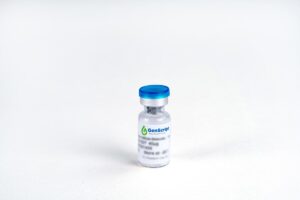
Trx-tag Antibody, mAb, Mouse
$87.98 Add to cart View Product DetailsThis antibody reacts with the Thioredoxin fusion protein from E.coli and human.Not yet tested in other species.
-
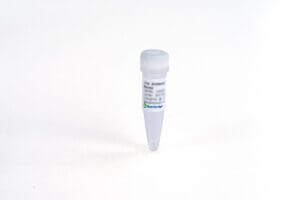
TSH (26A7), mAb, Mouse
$99.19 Add to cart View Product DetailsThyroid stimulating hormone (TSH) is a pituitary hormone that stimulates the thyroid gland to secrete thyroxine (T4) and triiodothyronine (T3). It is a glycoprotein, consisting of the alpha and the beta subunit. TSH serves as a sensitive and specific biomarker for evaluating thyroid function. It is a useful marker for monitoring patients under substitution therapy.
-

TSH (26A7), mAb, Mouse
$991.88 Add to cart View Product DetailsThyroid stimulating hormone (TSH) is a pituitary hormone that stimulates the thyroid gland to secrete thyroxine (T4) and triiodothyronine (T3). It is a glycoprotein, consisting of the alpha and the beta subunit. TSH serves as a sensitive and specific biomarker for evaluating thyroid function. It is a useful marker for monitoring patients under substitution therapy.
-

TSH (26A7), mAb, Mouse
$8,452.50 Add to cart View Product DetailsThyroid stimulating hormone (TSH) is a pituitary hormone that stimulates the thyroid gland to secrete thyroxine (T4) and triiodothyronine (T3). It is a glycoprotein, consisting of the alpha and the beta subunit. TSH serves as a sensitive and specific biomarker for evaluating thyroid function. It is a useful marker for monitoring patients under substitution therapy.
-

TSH (CA8), mAb, Mouse
$122.27 Add to cart View Product DetailsThyroid stimulating hormone (TSH) is a pituitary hormone that stimulates the thyroid gland to secrete thyroxine (T4) and triiodothyronine (T3). It is a glycoprotein, consisting of the alpha and the beta subunit. TSH serves as a sensitive and specific biomarker for evaluating thyroid function. It is a useful marker for monitoring patients under substitution therapy.
-

TSH (CA8), mAb, Mouse
$991.88 Add to cart View Product DetailsThyroid stimulating hormone (TSH) is a pituitary hormone that stimulates the thyroid gland to secrete thyroxine (T4) and triiodothyronine (T3). It is a glycoprotein, consisting of the alpha and the beta subunit. TSH serves as a sensitive and specific biomarker for evaluating thyroid function. It is a useful marker for monitoring patients under substitution therapy.
-

TSH (CA8), mAb, Mouse
$8,452.50 Add to cart View Product DetailsThyroid stimulating hormone (TSH) is a pituitary hormone that stimulates the thyroid gland to secrete thyroxine (T4) and triiodothyronine (T3). It is a glycoprotein, consisting of the alpha and the beta subunit. TSH serves as a sensitive and specific biomarker for evaluating thyroid function. It is a useful marker for monitoring patients under substitution therapy.
-

TSH (CT1), mAb, Mouse
$99.19 Add to cart View Product DetailsThyroid stimulating hormone (TSH) is a pituitary hormone that stimulates the thyroid gland to secrete thyroxine (T4) and triiodothyronine (T3). It is a glycoprotein, consisting of the alpha and the beta subunit. TSH serves as a sensitive and specific biomarker for evaluating thyroid function. It is a useful marker for monitoring patients under substitution therapy.


